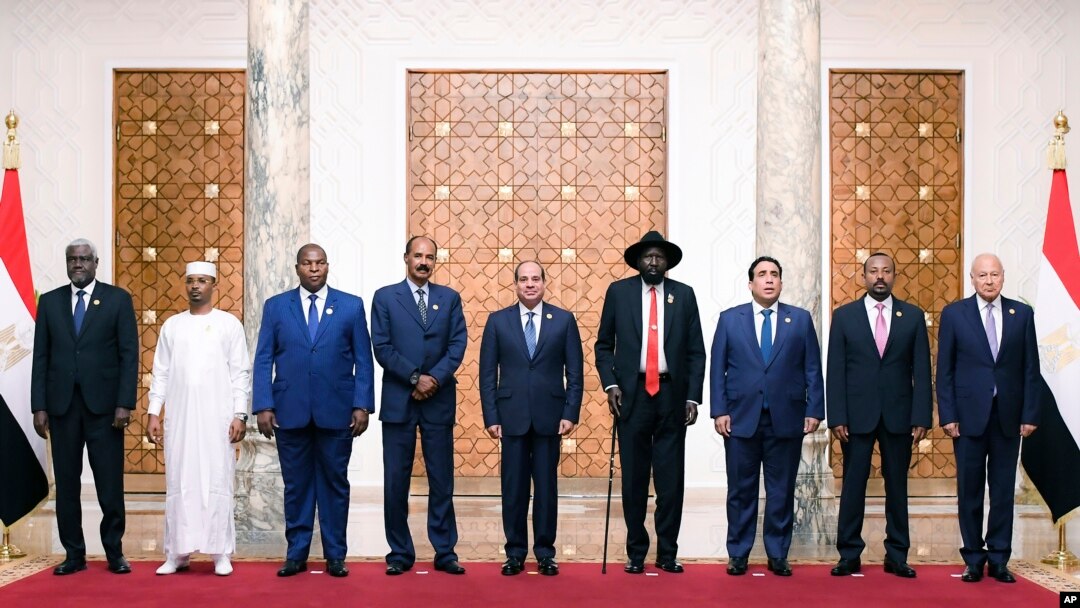Egyptian security sources report that the North African nation’s summit aims to stave off foreign interference in Sudan while influencing the fighting between the Sudanese Armed Forces and the paramilitary Rapid Support Forces.
The plan aims to achieve a three-month ceasefire and open aid pathways amid a series of meetings with military and tribal leaders, the sources said.
Egypt, which has historically close ties with the Sudanese army, invited Sudan's neighbors to the Thursday summit.
The leaders of Sudan's seven neighbors in a joint statement called on the warring parties to commit to a ceasefire, appealed to regional states not to interfere in the conflict, and agreed to facilitate delivery of aid.
They also warned of the possibility of Sudan's fragmentation or "descent into chaos that could lead to the spread of terrorism and organized crime" and called on the international community to meet aid pledges made last month.
Ethiopian Prime Minister Abiy Ahmed, whose country has clashed with Egypt over its construction of a giant dam on the Blue Nile, is among the African leaders in attendance of the summit hosted by the North African nation.
Ahmed met with Egypt's President Abdel Fattah al-Sisi on Wednesday, after last week saying the fourth filling of the dam this summer would be delayed and would ensure Sudan and Egypt would receive enough water, a conciliatory move after years of tension.
Al-Sisi and Ahmed "discussed ways to settle the crisis in Sudan," Sisi's spokesman announced late Wednesday ahead of a larger regional meeting.
Egypt’s summit comes after failed cease-fire negotiations by the United States and Saudi Arabia that witnessed suspension after a series of violations.
Joseph Siegle, director of research at the Africa Center for Strategic Studies in Washington, told VOA Egypt wants to see an end to the conflict in neighboring Sudan due to economic, humanitarian and security constraints.
"They're feeling the impact economically and in terms of trying to provide some kind of humanitarian assistance, Egypt also recognizes that a destabilized Sudan on its southern border is quite a security risk for Egypt," Siegle said.
Earlier this week, Ethiopia hosted a regional East African summit, another international attempt to bring peace to Sudan, but was boycotted by the army following claims of Kenya, the lead sponsor, being biased.
Previous one-day and multi-day cease-fires were quickly violated and were described by the United Nations special envoy Volker Perthes as an opportunity for the forces to re-position.
Speaking on Wednesday, Perthes described mediation attempts as "emergency diplomacy."
"The two warring parties still think they can win the war so they accept diplomatic initiatives when they think it can help their aims," Perthes said.
Fighting between Sudan's army and paramilitary Rapid Support Forces broke out in the capital Khartoum in April and has spread westward to the fragile Darfur and Kordofan regions.
More than 1,000 civilians have been killed and 3 million people have been displaced, according to the United Nations, which warns of a growing hunger crisis.
Information for this report came from Reuters and Agence France-Presse. VOA's Carol Van Dam contributed.


